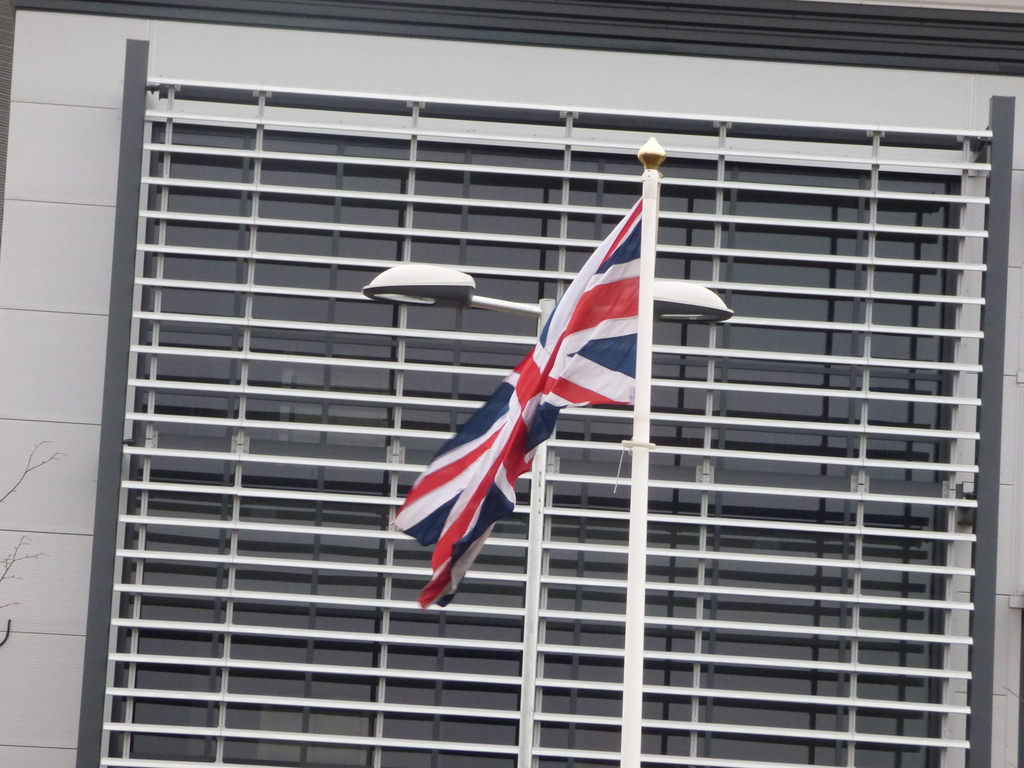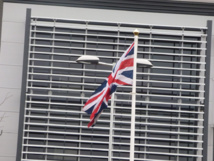The vote could take place in 2016 - in any case, this is what the British business’ representatives, worried about the consequences of a possible demarche, are waiting for. In their view, the sooner the referendum is held, the less the chance for the isolationism’s supporters’. De facto, the campaigns for and against Britain's membership in the EU are starting this week.
Theresa May made her keynote speech in Manchester at the conference of the ruling Conservative Party. "Immigration of such a scale, that we faced over the last ten years, is not in our national interest," - the head of the Interior Ministry said, and then tried to prove that the economic and tax effects of mass immigration to Britain are "close to zero". The government, she said, "is forced to pay a high price," building annually 210 thousand new homes and creating additional places at schools. In addition, mass migration, as noted by Theresa May, has deprived thousands of British of jobs and "makes it impossible to build a cohesive society."
The Minister urged to separate those who really need help from migrant workers seeking to get to Britain because of the developed social security system. "There is a huge difference between a young Syrian family that runs from the tyranny of the "Islamic State" or Bashar al-Assad’s troops, and a student with overstood visa or foreign criminals,"- said Teresa May. She promised to work with other countries in the EU and the UN Secretariat to refine the legal meaning of "asylum" and "refugee". In addition, Mrs. May advocated the return of forced migrants to their homeland in the event of a substantial improvement in the situation there.
The minister also said that Britain is going to use the contractual term of the 1997’s Amsterdam Treaty (one of the key EU’s documents), which allows, if necessary, automatically rejecting any request for asylum from a citizen of another European Union country. Mrs. May called absurd the current situation when, for example, Polish and Spanish residents are seeking asylum in the UK.
Today, in the final day of the Conservative conference, the keynote speech will be performed by Prime Minister David Cameron - he is also expected to touch upon the theme of migration. Having won the parliamentary elections in May, the politician immediately began a longstanding diplomatic marathon, during which he is trying to convey to his interlocutors the following message: it is better to agree to the demands of Britain than losing the country’s membership in the European Union. In addition to the measures, mentioned by Theresa May, London requires the introduction of a maximum term for staying in the British territory for unemployed foreigners (six months), followed by deportation, limit migrants' access to social benefits, as well as of the right of veto on any EU initiative to national parliaments. In addition, Britain wants to reserve the right to stay away from further integration in the European space.
The negotiations will be completed by the end of this year, and then the referendum on leaving the UK from the EU should be held within two years. The exact date is yet to be determined, so that the government of Mr. Cameron would have room for maneuver. In particular, an offer of British business to hold a referendum as early as 2016can be considered in the government. According to Financial Times, this initiative was made by Simon Walker, head of the Institute of Directors - the leaders of the union of British companies and representatives of business, overall of 34.5 thousand people. Mr. Walker is confident that the chances that Britain will remain in the EU will be even in 2016. But from then, given the rise of Euroscepticism of Britons and possible policy errors of David Cameron’s government, the number of supporters of the breach with Brussels will increase.
Currently, the outcome of the vote is difficult to predict. Basing on the latest survey of YouGov company, 40% of the British are for the country's withdrawal from the EU, 38% are against. Much will ultimately depend on whether David Cameron will be able to bargain significant concessions out the EU leadership and the results of supporters and opponents of the policy of isolationism’s information campaigns. According to British media, de facto the campaign is going to be launched on October 11, when the leaders of the two opposing camps will be peaking on BBC.
source: ft.com, bbc.co.uk
Theresa May made her keynote speech in Manchester at the conference of the ruling Conservative Party. "Immigration of such a scale, that we faced over the last ten years, is not in our national interest," - the head of the Interior Ministry said, and then tried to prove that the economic and tax effects of mass immigration to Britain are "close to zero". The government, she said, "is forced to pay a high price," building annually 210 thousand new homes and creating additional places at schools. In addition, mass migration, as noted by Theresa May, has deprived thousands of British of jobs and "makes it impossible to build a cohesive society."
The Minister urged to separate those who really need help from migrant workers seeking to get to Britain because of the developed social security system. "There is a huge difference between a young Syrian family that runs from the tyranny of the "Islamic State" or Bashar al-Assad’s troops, and a student with overstood visa or foreign criminals,"- said Teresa May. She promised to work with other countries in the EU and the UN Secretariat to refine the legal meaning of "asylum" and "refugee". In addition, Mrs. May advocated the return of forced migrants to their homeland in the event of a substantial improvement in the situation there.
The minister also said that Britain is going to use the contractual term of the 1997’s Amsterdam Treaty (one of the key EU’s documents), which allows, if necessary, automatically rejecting any request for asylum from a citizen of another European Union country. Mrs. May called absurd the current situation when, for example, Polish and Spanish residents are seeking asylum in the UK.
Today, in the final day of the Conservative conference, the keynote speech will be performed by Prime Minister David Cameron - he is also expected to touch upon the theme of migration. Having won the parliamentary elections in May, the politician immediately began a longstanding diplomatic marathon, during which he is trying to convey to his interlocutors the following message: it is better to agree to the demands of Britain than losing the country’s membership in the European Union. In addition to the measures, mentioned by Theresa May, London requires the introduction of a maximum term for staying in the British territory for unemployed foreigners (six months), followed by deportation, limit migrants' access to social benefits, as well as of the right of veto on any EU initiative to national parliaments. In addition, Britain wants to reserve the right to stay away from further integration in the European space.
The negotiations will be completed by the end of this year, and then the referendum on leaving the UK from the EU should be held within two years. The exact date is yet to be determined, so that the government of Mr. Cameron would have room for maneuver. In particular, an offer of British business to hold a referendum as early as 2016can be considered in the government. According to Financial Times, this initiative was made by Simon Walker, head of the Institute of Directors - the leaders of the union of British companies and representatives of business, overall of 34.5 thousand people. Mr. Walker is confident that the chances that Britain will remain in the EU will be even in 2016. But from then, given the rise of Euroscepticism of Britons and possible policy errors of David Cameron’s government, the number of supporters of the breach with Brussels will increase.
Currently, the outcome of the vote is difficult to predict. Basing on the latest survey of YouGov company, 40% of the British are for the country's withdrawal from the EU, 38% are against. Much will ultimately depend on whether David Cameron will be able to bargain significant concessions out the EU leadership and the results of supporters and opponents of the policy of isolationism’s information campaigns. According to British media, de facto the campaign is going to be launched on October 11, when the leaders of the two opposing camps will be peaking on BBC.
source: ft.com, bbc.co.uk



















